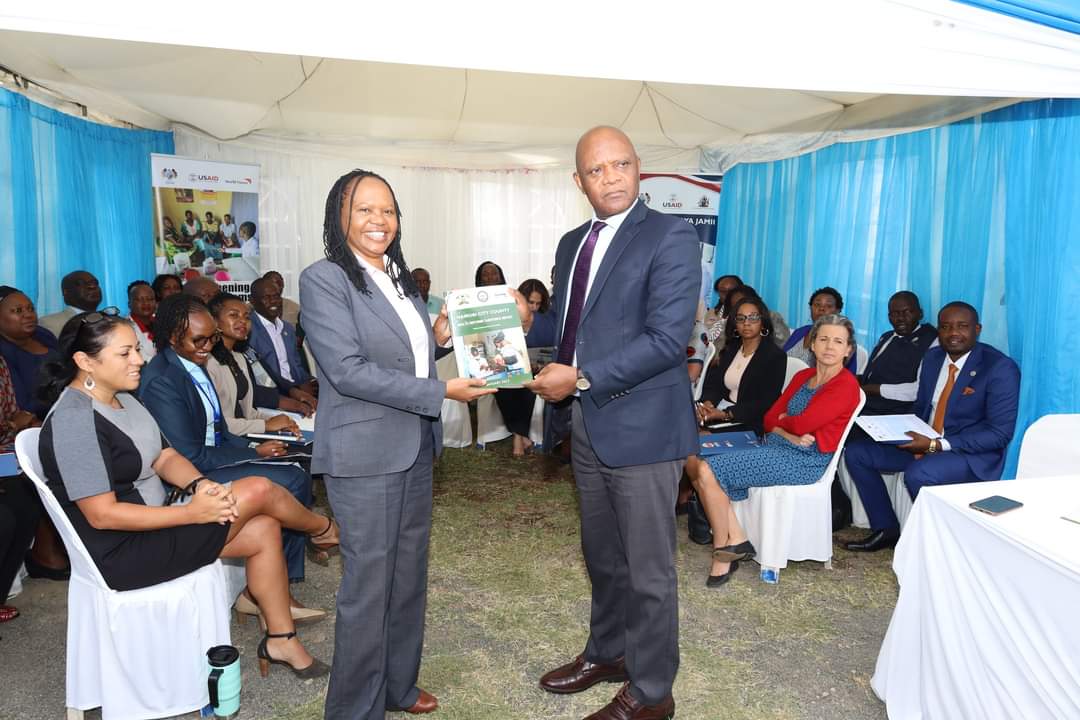
Nairobi City County Executive Committee Member for Health, Wellness and Nutrition Dr. Anastasia Nyalita hosted visiting President’s Emergency Plan for AIDS Relief (PEPFAR) Ambassador, Dr. John N. Nkengasong at the County’s Mathare North Hospital.
While addressing members of the press on Wednesday 25th January, Dr Nyalita, said, “The Nairobi City County Government continues to work closely with development partners in the health sector, particularly partnering with the USG to deliver sustainable HIV/TB/RMNCAH/WASH services.
Since the inception of PEPFAR funding by president’s Bush administration, Nairobi has had tremendous support customized to the population needs; with the APHIA projects led by international organizations to the current mechanism as led by the University of Nairobi and World Vision Kenya, both local organizations.”
Dr. Nyalita mentioned that Nairobi City has a high burden of HIV and TB with a HIV prevalence rate of 5.1% with disproportionately high new infection rates among adolescents at 33%.
“We also have a high burden of Gender Based violence at 30% among women aged 15-49 as per statistics released last week (KDHS 2022). In Nairobi City County the call to end new HIV infections, pregnancies, and sexual and gender-based violence among adolescents dubbed the triple threat was key as such challenges reinforced the HIV epidemic in addition to other syndemic diseases such as sexually transmitted infections and tuberculosis.
Embodying the programme at a dinner function, Nairobi Governor Johnson Sakaja and Ambassador Nkengasong, together with his team, further discussed progress and initiatives that were being taken jointly with Nairobi City County Government.
“I am grateful for the support and plans to refocus initiatives towards the young people of Nairobi.” Governor Sakaja noted
PEPFAR is the U.S. Government initiative to help save the lives of those suffering from HIV/AIDS around the world.
Since 2004, the US government has invested at least 6.5 billion dollars in Kenya. In just eleven years, PEPFAR has moved from an emergency program to one squarely focused on controlling the epidemic.

